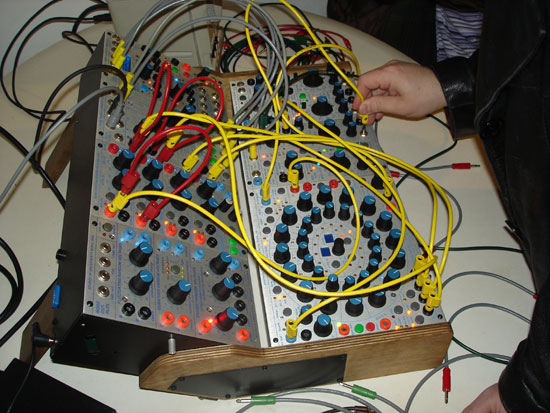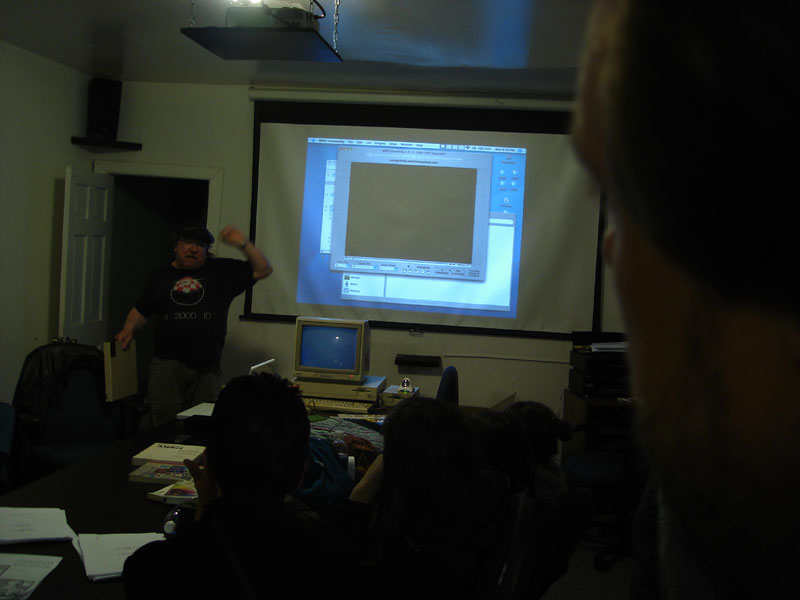Review of this month’s Atlanta Dorkbot meeting featuring Don Hassler’s Buchla 200e demo, and Aaron Ruscetta’s old school Amiga hardware presentation.

This month’s Atlanta Dorkbot was held in its new home, Wonderroot, a non-profit community center of sorts that has meeting space, rock shows, an art gallery, and even recording facilities.
https://youtube.com/watch?v=mO6XsA6d4hE
The first presenter was Don Hassler, a local Atlanta musician/artist (bio here) who has been working with electronics for music since the early 80’s. Don (shown in video), did a nice demonstration of some of the basic features of his Buchla 200e modular synthesizer. The 200e is an updated series from Don Buchla’s original, and incredibly unique analog modular systems of the 70’s. Buchla, along with Robert Moog are credited for being the fathers of the synthesizer, both sort of simultaneously developing synthesizers on either coast. Buchla was involved with the San Francisco Tape Music Center, founded by the composers Morton Subotnick and Ramon Sender. The tape music center was a place for new music performances, experimentation, and several psychedelic parties which, at the height of the Haight-Ashbury scene, included bands that went on to huge success like the Grateful Dead.
Buchla’s synthesizers were unique in that they weren’t necessarily design to be played with traditional keybaords, rather they were meant to be completely new instruments, with inspiring interfaces. Don’s demo of his modular was simple, yet pointed out the components and design philosophy that differentiated the Buchla instruments from other synthesizer, both vintage and new.
You can find more information as well as some of Don Hassler’s music on his website
The second presenter was Aaron Ruscetta, a media artist, and editor, and Amiga enthusiast who enthusiastically gave a great overview of the history of the Amiga computer, and the culture of users that it created.

Aaron went through the histor of the Amiga computer, and talked about his experience as a video editor and graphic artist with the Amiga systems. Starting with the earliest home computers such as the Commodore 64, the Demoscene exploded with advent of the Amiga’s unprecedented graphics power. Demos were basically programs written to show off graphics processing capabilities of systems, but many of the early demo creators reached a sort of cult status amongst graphic programmers. Also interesting to note, the demo scene was also somewhat responsible for the birth of music trackers. Artists wanted to add music to their demos, and so created simple table-based sequencers for stringing together samples to create music. the demo/tracker scene in turn had a big hand in spawning IDM, glitch, etc. music genres. Aaron is now the First Contact and Event Coordinator for the Atlanta Linus Enthusiasts User Group
